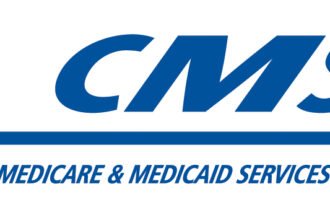
(Editor’s Note: The following is the fourth and last post in a series of four exclusive HealthWorks Collective interviews on Health Policy by our Washington DC reporter, Steven Goldstein)

(Editor’s Note: The following is the fourth and last post in a series of four exclusive HealthWorks Collective interviews on Health Policy by our Washington DC reporter, Steven Goldstein)
Ardis Dee Hoven, M.D., an internal medicine and infectious disease specialist in Lexington, Kentucky, is the 168th president of the American Medical Association (AMA), the nation’s largest physician organization. During her presidency Dr. Hoven has focused on improving health outcomes, accelerating change in medical education and enhancing physician satisfaction and practice sustainability.
HWC –You’ve spoken about delivery reform and payment change. How will ACA impact this and what have you learned from speaking to physicians?
ADH — Physicians are engaged in looking at new models for delivery and they understand that in order to provide quality care and — given past troubles — these new models of care are very important. I’m speaking of some things in the ACA, such as accountable care organizations and the primary medical home being the two that seem to have reached a higher ground. These two elements are very important for delivery. Doctors have embraced new models of delivery because they want to deliver high-quality care, team care, collaborative care that patients need.
HWC –What do physicians want from the ACA?
ADH — The most important thing is that the uninsured get health insurance coverage. That is what prompted the AMA to support the ACA. Physicians understand that those without health insurance live sicker and die younger. We know we have to change the way individuals and patients use the health care delivery system. Right now we use it on the “back end;” we give great care in chronic disease management, we do wonderful things with complications. But we realize we’ve got to turn this bus around and get it going the other way so that folks get into health care earlier, into prevention and wellness care and earlier diagnostic evaluations for problems so that we can make their lives better and healthier.
HWC — Should fee for service disappear or not?
ADH — In the near future there will be a continued need for fee for service in probably modified form so it will look a bit different. It will have attached some of the quality parameter issues that many of the ACOs and primary medical homes already have. But I think there are going to be parts of the country, certain types of practices that those rapid changes into different models will not be as quick. So we have to bridge this time with a modified fee for service and I do not see it going away.
HWC — Will ACA and the exchanges result in lower reimbursements for care?
ADH — No, reimbursements for physicians will probably improve. We’re going to save money in the whole management of the patient systems. At the end of the day, I think those reimbursements will be stabilized and increased so that physicians can be appropriately paid for the work they are doing and the care they are providing.
HWC — Will the ACA result in a shortage of primary care physicians? Will nurse practitioners fill any shortfall?
ADH — The ACA isn’t a factor here. We have been looking at reduced numbers of physicians and all allied health care professionals — nurses, physicians assistants, you name it — for some time. As new folks enter into the health care delivery system and get the right kind of care, we’ll look at ways to increase the number of primary care physicians. Over the last 20 years, there’s been a 45 percent increase in primary care physicians in the US — that’s still not enough. There are incentives under the ACA that will enhance the likelihood of someone who wants to do that to be reimbursed appropriately for providing that care. If we look at medical education, at ways of enhancing the tools for not only primary care doctors but there are specialties out there that are not getting the numbers they need. And we’re addressing this in the AMA’s medical education acceleration program.
HWC — What does the AMA view as a weakness of the ACA, if any, or is there a specific provision that could be improved?
ADH — The first weakness is that the ACA did not deal with the issue of Medicare payment and the sustainable growth rate — the formula that is used to calculate physician payment for services rendered. Secondly, we continue to be concerned about the Independent Payment Advisory Board, a politically appointed group that would have wide-ranging ability to make cuts across the board in Medicare payments, and does not meet the needs as to what has to happen in Medicare. Third is the whole issue of medical liability reform, which was left out of the ACA. Those are the big issues that are problematic for us.
(health insurance exchanges / shutterstock)







